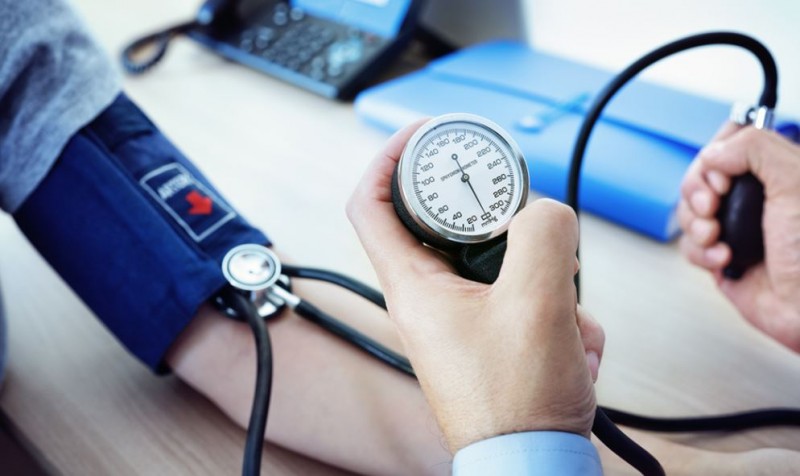
High blood pressure, medically termed hypertension, is a prevalent yet often overlooked health condition characterized by elevated blood pressure levels in the arteries. While it can be influenced by genetic factors, it is predominantly associated with lifestyle choices and dietary habits. Despite its silent nature, high blood pressure poses significant risks to overall health, affecting various bodily systems. In this detailed analysis, we will explore the intricate mechanisms through which high blood pressure impacts different aspects of health, including cardiovascular health, brain function, kidney function, vision, and peripheral arteries.
Symptoms of High Blood Pressure:
Several symptoms may indicate the presence of high blood pressure, which should not be overlooked:
Difficulty breathing
Blurred vision
Dizziness
Nosebleeds
Chest pain
Headaches
These symptoms often serve as warning signs of high blood pressure and necessitate immediate medical attention. Failure to manage high blood pressure through lifestyle changes and medication can result in adverse effects on various parts of the body.
Cardiovascular Health:
The cardiovascular system is profoundly affected by high blood pressure, primarily due to the increased workload imposed on the heart. When blood pressure remains consistently elevated, the heart must work harder to pump blood throughout the body, leading to structural changes in the heart muscles and blood vessels. Over time, this can result in the thickening and stiffening of the arterial walls, a condition known as arteriosclerosis, which further exacerbates hypertension.
Moreover, the continuous strain on the heart can lead to the development of left ventricular hypertrophy, wherein the left ventricle of the heart enlarges in response to increased workload. Left untreated, this can progress to heart failure, where the heart is unable to pump blood effectively to meet the body's demands. Additionally, hypertension increases the risk of coronary artery disease, narrowing the arteries that supply blood to the heart muscle and raising the likelihood of heart attacks and angina.
Brain Function:
The impact of high blood pressure on brain health is multifaceted and encompasses various mechanisms. Elevated blood pressure contributes to the development of cerebral small vessel disease, characterized by damage to the small blood vessels in the brain. This can lead to lacunar infarcts, microbleeds, and white matter lesions, ultimately increasing the risk of cognitive impairment, vascular dementia, and Alzheimer's disease.
Furthermore, hypertension is a significant risk factor for stroke, a condition characterized by the interruption of blood flow to the brain, either due to a blockage in a blood vessel (ischemic stroke) or the rupture of a blood vessel (hemorrhagic stroke). Ischemic strokes, which account for the majority of strokes, are particularly common in individuals with hypertension due to the formation of blood clots in narrowed or damaged arteries. Hemorrhagic strokes, on the other hand, occur when weakened blood vessels rupture under pressure, leading to bleeding into the brain tissue.
Kidney Function:
The kidneys play a vital role in regulating blood pressure by controlling fluid balance and eliminating waste products from the body. However, prolonged hypertension can damage the delicate blood vessels in the kidneys, impairing their ability to filter blood effectively. This can result in reduced kidney function, characterized by decreased glomerular filtration rate (GFR) and proteinuria (presence of protein in the urine).
As kidney function declines, fluid and waste products accumulate in the body, leading to electrolyte imbalances, fluid retention, and the development of complications such as chronic kidney disease (CKD) and end-stage renal disease (ESRD). Moreover, hypertension-induced renal damage can further exacerbate high blood pressure, creating a vicious cycle of progressive kidney injury and cardiovascular complications.
Vision:
High blood pressure can have detrimental effects on vision, primarily due to its impact on the blood vessels in the eyes. Hypertension can lead to hypertensive retinopathy, characterized by damage to the retinal blood vessels, retinal hemorrhages, and optic nerve abnormalities. These changes can impair vision and, if left untreated, may progress to more severe complications such as retinal artery or vein occlusion, retinal detachment, and even permanent vision loss.
Additionally, hypertensive retinopathy serves as a marker of systemic vascular damage and is associated with an increased risk of cardiovascular events such as heart attacks and strokes. Therefore, regular eye examinations are essential for individuals with hypertension to detect and manage any ocular changes promptly.
Peripheral Arteries:
In addition to affecting the central circulation, high blood pressure also impacts the peripheral arteries, particularly those supplying the lower extremities. Peripheral artery disease (PAD) is a common consequence of hypertension, characterized by the narrowing and hardening of the arteries in the legs due to atherosclerosis. This restricts blood flow to the lower limbs, resulting in symptoms such as leg pain, cramping, and impaired wound healing.
Moreover, individuals with hypertension are at increased risk of developing critical limb ischemia, a severe form of PAD characterized by chronic pain, ulcers, and gangrene. Left untreated, critical limb ischemia can lead to limb amputation and significantly impair quality of life. Therefore, early detection and management of hypertension are crucial in preventing peripheral artery disease and its associated complications.
High blood pressure is a complex and multifaceted condition that exerts profound effects on various aspects of health, including cardiovascular function, brain health, kidney function, vision, and peripheral arteries. Understanding the mechanisms through which hypertension contributes to these complications is essential for effective management and prevention of its associated morbidity and mortality. By adopting a holistic approach to hypertension management, including lifestyle modifications, pharmacological interventions, and regular monitoring, individuals can mitigate the adverse effects of high blood pressure and improve overall health outcomes.
WHO Reports Over 114.1 lakh New Cancer Cases and 910,000 Deaths in India
World Cancer Day 2024: Revolutionizing Cancer Diagnosis with ArtificiaI Intelligence
Say Goodbye to Your Sleepless Nights: Try These Effective Tips for a Better Sleep